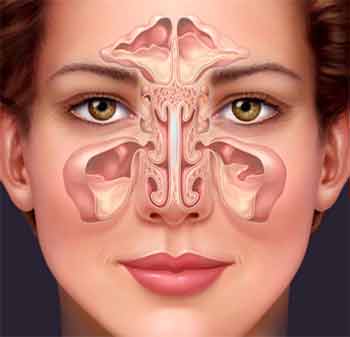Advising patient with chronic sinus congestion to use nasal irrigation – a popular nonpharmacologic treatment – improved their symptoms, but steam inhalation did not, according to a randomized controlled trial published in CMAJ (Canadian Medical Association Journal).
More than 25 million people in the United States and about 2.5 million Canadians suffer from chronic rhinosinusitis, or sinus infection, and experience compromised quality of life. To alleviate symptoms, steam inhalation and nasal irrigation are widely suggested as an alternative to common treatment with antibiotics, which are often not effective and contribute to antibiotic resistance.
Researchers from the United Kingdom conducted a randomized controlled trial on the effectiveness of advice from primary care physicians to use nasal irrigation and/or steam inhalation for chronic sinusitis. The study involved 871 patients from 72 primary care practices in England who were randomly assigned to 1 of 4 advice strategies: usual care, daily nasal and saline irrigation supported by a demonstration video, daily steam inhalation, or combined treatment with both interventions.
“We have found that even a very brief intervention of a video showing patients how to use saline nasal irrigation can improve symptoms, help people feel they do not need to see the doctor to manage the problem, and reduce the amount of over-the-counter medication they need to use,” said Dr. Paul Little, Primary Care and Population Sciences Unit, University of Southampton, Southampton, United Kingdom.
Patients who were instructed to use nasal irrigation showed improvement at 3 and 6 months, as measured by the Rhinosinusitis Disability Index. Steam inhalation did not appear to alleviate symptoms of sinusitis.
“We found potentially important changes in other outcomes; in particular, fewer participants in the nasal irrigation group than in the no-irrigation group had headaches, used over-the-counter medications and intended to consult a doctor in future episodes,” write the authors. “Although there was no significant difference in either physician visits or antibiotic use, as might be expected over only a 6-month follow-up period, our findings concerning consultations are important in the longer term, given antibiotic use increases the risk of antimicrobial resistance.”
Since the impact was less than in previous studies that had used more intensive coaching about nasal irrigation, the authors suggest that further research is needed to understand how much coaching of patients is required.


